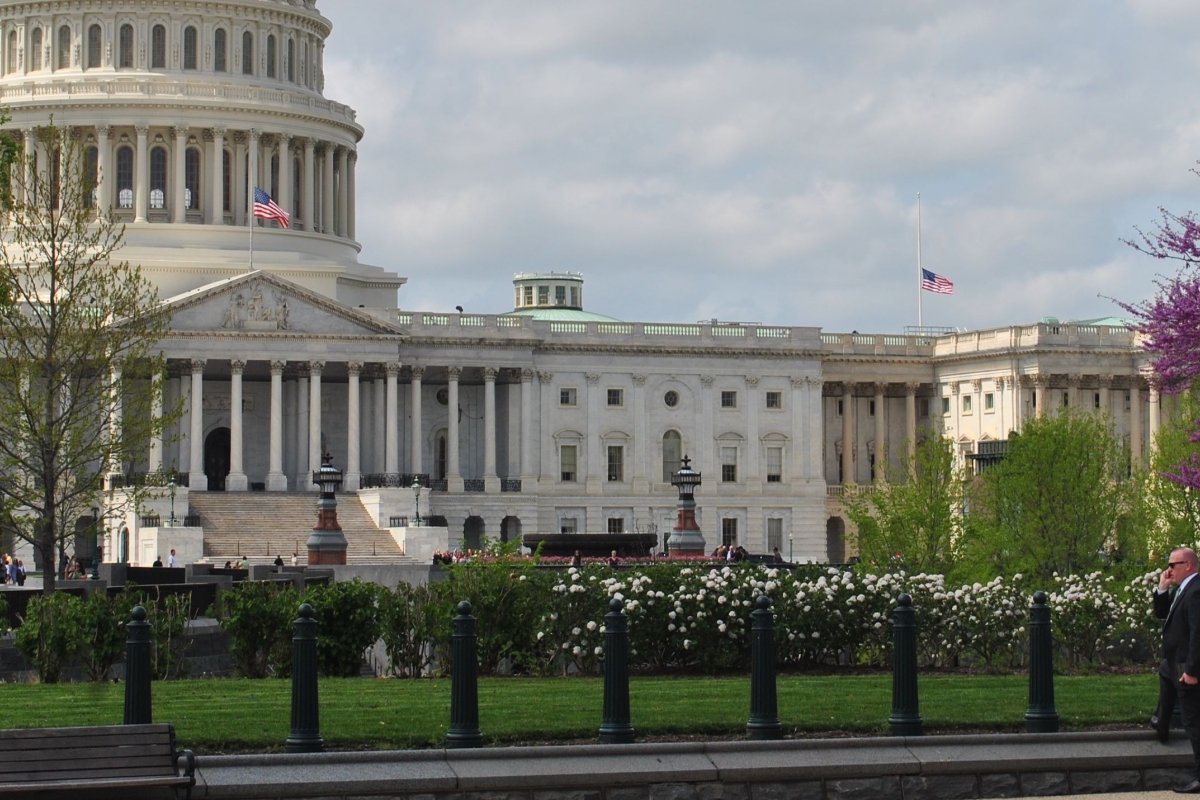
Extremism and Defense of Democracy
If we focus on policing acceptable political ideas via the state, we do more to undermine democracy than to secure it.
We hear more and more that democracy is in danger. With the presidency of Donald Trump and the rise of the political far right, talk of democratic backsliding has moved from the academy to popular discourse. For many in the US, the threat to democracy is epitomized by the storming of the Capitol building on January 6 of this year.
To try to understand the shocking event, Democrats in Congress have been investigating the groups that supported the incursion and the ideas that connect them. The Biden administration’s Justice Department is considering treating rightwing extremism in the US under a similar rubric to Islamism. Those who are alarmed at how hatred has apparently moved from the political fringes to threaten the center might understandably want to use any resource at hand to protect democracy.
However, experience of the war on terror shows us that if we focus our politics on trying to police the boundary between acceptable and unacceptable political ideas or movements, and build up the state to enforce this boundary, we do more to undermine democracy than to secure it.
To begin, it is helpful to ask how basically negative and defensive concepts like “extremism” and “terrorism” can encompass both nationalism and Islamism, movements that share little common history. One important difference between them is that the security state and the news media tend to represent Islamic extremism as a threat from abroad, and the far right as a homegrown problem. Nevertheless, the framework of “terrorism” is supposed to be able to analyze different threats together through its focus on the ideas that inspire them.
Very often, words like “terrorism” or “extremism” are defined not just through a violent crime, or an attempted violent crime, but also through the ideologies that motivate these actions, which we judge to be particularly menacing to social and political life. Although the war on terror is a new phenomenon, concern about the danger posed by extremism is older than the United States. Political secularism has, to a large extent, been defined by a desire to exclude dangerous ideas from public discussion and social legitimacy. The historian Michael Heyd points out that much as the Enlightenment thinkers who influenced the US Constitution criticized religious persecution by the state, they were also concerned about how rogue fanatical or “enthusiastic” religious thought might threaten public order.
The war on terror has targeted the threat that “radical Islamic extremism” poses to that order, and it has brought violence and chaos to large parts of the world for twenty years. It has claimed 900,000 lives. Far from coming together to defend democracy, governments in much of the Muslim world, especially the Middle East, have been able to claim that they are helping in the anti-terror effort and used this as an excuse to consolidate authoritarian rule. From Morocco to China, the war against militant Islam has enabled anti-democracy.
In the US, like other Western countries, the security state has expanded beyond the bounds of traditional civil-liberties jurisprudence and the domains covered by the norms of transparency. As a result, the state operates in such secrecy that democratic oversight is significantly diminished. The security state’s opacity is all the more worrying given how indeterminate its targets are. Islamic radicalism seems to be found wherever people look prejudicially against Muslims, and its signs include ordinary religious expression, dress, and socializing. In other words, signs of out-group membership can give rise to suspicions of extremism.
Muslims in the West, like other minority groups in modern history, face a particular double bind of suspicion. Political scientist Anne Norton explains that the more successfully Muslims assimilate and avoid being seen as outsiders, the more they are subject to the suspicion that they have something to hide. Consider that for decades, Muslims in the US were seen as a model minority until their assimilation was subject to fresh doubts because of their association with ideas so vague they seem to be found everywhere in the world.
Although white nationalism might not occupy the same margin of acceptable political thought as Islamic extremism, it might be similarly hard to define, and its vagueness could potentially encompass similarly large groups of people. For one thing, the ideological boundary between ultranationalists and mainstream conservative politicians is unclear. According to one report, Twitter was reluctant to bring its considerable censorious powers against the far right because its experts had difficulty distinguishing extreme nationalism from establishment conservative discourse. If, in response, one political party tries to turn the security state against a group of people that might include its own opponents, democracy is in serious doubt.
In all, amid the global war on terror, actors inside and outside of the government have brought significant threats to liberal democracy, and the rightwing extremists who tried to overturn the last election are among them. However, if we choose to respond to them by mobilizing a security state against outrageous ideas, we risk exacerbating a greater problem with our solution to a smaller one. Given that both the extreme right and the security apparatus have grown in response to the perceived threat of foreign terror, it is perhaps not surprising to find extensive support for the former in the ranks of the latter.
Moreover, even if sympathy for the far right were somehow purged from the military or law enforcement, and the security state only sought to apprehend real terrorists and try them as fairly as any other perpetrators of violence, there is a broader reason to think democracy would be little more secure. The reason is that police action plays a small and non-determinative part in the political work that needs to take place.
The philosopher Jacques Rancière goes so far as to distinguish policing, which he sees as mainly concerned with figuring out the boundaries of an existing system, from politics-proper, where the system itself and its legitimacy is up for debate. Rancière’s formulation suggests that substantive politics is where the real repair and expansion of democracy could take place.
Nevertheless, as much as we hear that democracy must be protected, there is comparatively little discussion in the mainstream press about why it is worth protecting. Inequality is worsening, a public-health crisis continues to hit the most vulnerable parts of society the hardest with no end in sight, and the dangers of climate change to ecological and social life persistently mount. Politics engaged with these problems would seem more able to affirm the democratic premises that everyone’s life matters, and our shared interests can be defended together.
It is beyond the scope of the essay here to definitively describe how to change politics to bring more people in, but recent history shows the limits and dangers of changing policing to keep more ideas out. Twenty years ago, the war on terror was launched to defend democracy against dangers from the periphery of the world system. As a result, democracy is now threatened from within that system’s central domain.


